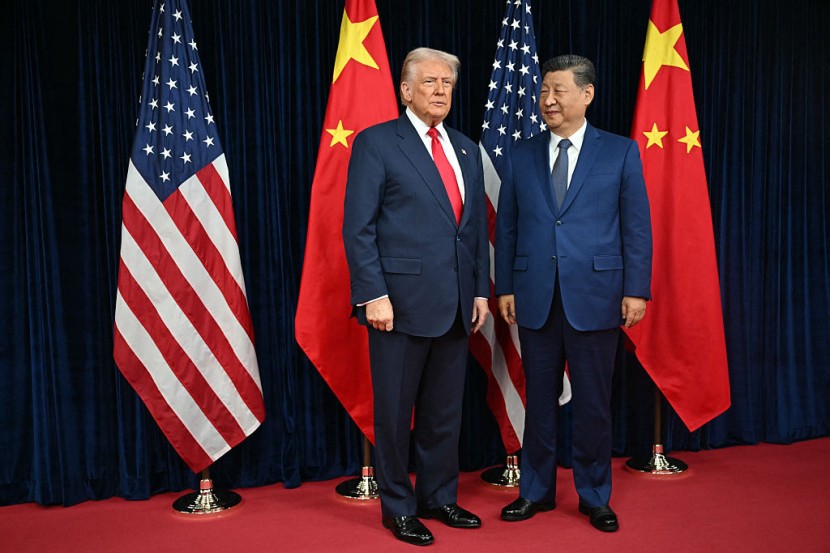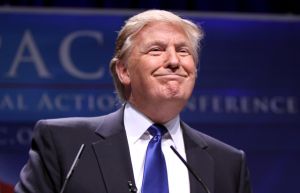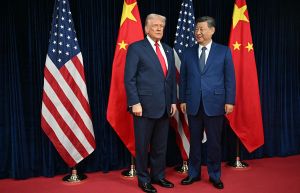
In a surprise breakthrough, U.S. President Donald Trump and Chinese President Xi Jinping have agreed to a one-year trade truce, easing years of economic confrontation between the world's two largest economies. The deal was struck during their first in-person meeting in six years, held on the sidelines of the APEC Summit in South Korea.
According to Al Jazeera, Trump hailed the talks as "amazing," saying both sides had taken "big steps toward fairness."
The truce includes multiple concessions on both sides. The United States will lower tariffs on a range of Chinese goods, cutting the average rate from roughly 57 % to 47 %, according to Reuters. Duties on fentanyl-related imports were halved from 20 % to 10 %, following Beijing's agreement to intensify efforts to curb illicit drug exports, as reported by The Washington Post.
China also pledged to resume large-scale purchases of U.S. soybeans, marking a major win for American farmers. Beijing will pause export controls on rare earths and other critical minerals for one year — a significant concession noted by the Times of India.
The agreement halts a trade war that has lasted nearly a decade, involving hundreds of billions of dollars in tariffs, export bans, and supply-chain disruptions. Economists say it could restore short-term stability to global markets strained by high inflation and geopolitical uncertainty. For Washington, the pause offers relief for importers and agriculture exporters while securing cooperation on fentanyl control, a top domestic priority. For Beijing, it provides breathing space for its economy amid slowing growth and global decoupling pressures. Market analysts told The Business Standard the move "reduces immediate volatility but does not end strategic rivalry."
Despite the positive tone, experts emphasize that this is not a full-scale trade agreement. Core issues — such as technology transfer, semiconductor restrictions, and state-subsidy reform — remain unresolved. Al Jazeera reports that both leaders see this as a temporary reset, with plans for further negotiations. Trump is expected to visit Beijing next April, followed by a reciprocal trip by Xi to Washington later in the year. Forbes notes that the framework leaves room for deeper economic cooperation — or renewed confrontation if progress stalls.
Global markets rallied modestly following the announcement, with commodity prices stabilizing and Asian equities gaining slightly. Analysts cautioned, however, that the underlying competition between the two nations remains intense. In Washington, the White House praised the deal as proof that "tough negotiating works." In Beijing, state media highlighted Xi's role in "restoring balance to global trade." As one observer put it on Reddit: "This looks more like a one-year pause than a lasting peace."
Several issues will determine whether the truce holds. Export controls on advanced semiconductors remain unchanged, while China's commitments to agricultural purchases and rare-earth access will be closely monitored. Diplomatic planning is also underway for Trump's anticipated visit to Beijing next spring.
The Trump–Xi trade truce offers both nations — and the world — a much-needed pause after years of tariff escalation and economic brinkmanship. Whether it evolves into a foundation for long-term stability or merely a brief ceasefire in an ongoing rivalry will depend on what each side does with the year they've bought.
Originally published on IBTimes
© Copyright IBTimes 2024. All rights reserved.








